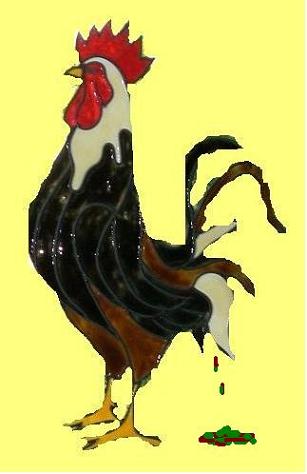SHANGHAI — China on Sunday announced a huge economic stimulus package aimed at bolstering its weakening economy and perhaps helping fight the effects of a global economic slowdown.
In a sweeping move at a time when major projects are being put off around the world, Beijing said it would spend an estimated $586 billion by 2010 on wide array of national infrastructure and social welfare projects, including constructing new railways, subways, airports and rebuilding communities devastated by an earthquake in southwest China in May.
The package, announced by the State Council Sunday evening, is the largest economic stimulus effort ever undertaken by the Chinese government and would amount to about 7 percent of the country’s gross domestic product during each of the next two years.
Beijing also said it was loosening credit and encouraging lending as part of a more “pro-active fiscal policy.”
“Over the past two months, the global financial crisis has been intensifying daily,” the State Council said in its statement. “In expanding investment, we must be fast and heavy-handed.”
The stimulus plan would be enormous for any country, let alone one whose gross domestic product is lower than most other major industrialized countries, at around $3.5 trillion this year. Earlier this year, the United States Congress passed a $700 billion bailout package in a country with an economy whose size is close to $14 trillion.
The announcement came less than a week before President Hu Jintao is scheduled to travel to Washington for a global economic summit meeting that will be attended by world leaders and hosted by President Bush. There, China is expected to be pressed by world leaders to do its part to help strengthen the global economy in the face of what some economists say is the worst financial crisis since the Great Depression.
But Beijing has already indicated that it intends to help stabilize the global economy by looking inward, and helping keep the world¡¯s fastest-growing economy on track.
At a weekend meeting of Group of 20 finance ministers in Sao Paolo, Brazil, the head of China’s Central Bank, Zhou Xiaochuan, said China can help stabilize international markets by encouraging consumption at home.
And on Saturday, Chinese President Hu spoke by telephone with President-elect Barack Obama about a range of issues, including the global financial crisis and how the two countries might cooperate to help resolve economic problems, according to China’s state-run news media.
Beijing is already struggling to cope with a rapidly slowing economy at home.
After five years of growth in excess of 10 percent, China’s economy is beginning to weaken because of slowing export and investment growth, waning consumer confidence and severely depressed stock and property markets.
The downturn in investment and exports has led to factory closures in southern China, triggering mass layoffs and even sporadic protests by workers who have complained that owners disappeared without paying them their wages.
With many economists in China now projecting that growth in the fourth quarter of this year could be as low as 5.8 percent, and worries that China’s economic miracle could be walloped by the global financial crisis, Beijing is moving aggressively.
While it is unclear how much of the stimulus money is additional government spending, on top of what the government normally earmarks for its infrastructure projects, the government made clear it was aimed at propelling growth for the next two and a quarter years.
Analysts were expecting China to announce a big stimulus package but say they were surprised at the size of it.
“That is much more aggressive than I expected,” said Frank Gong, a Hong Kong based economist at J.P. Morgan. “That’s a lot of money to spend.”
Mr. Gong said that after the Asian financial crisis in 1997, Beijing undertook a similar, but much smaller, stimulus package, earmarking huge sums to build the country’s massive highway and toll road system, which helped keep the economy growing.
Arthur Kroeber, managing director at Dragonomics, a Beijing-based economic research firm, said the government is concerned because people in China have suddenly pulled back on spending as a precautionary move because of worries about China suffering with the global economy.
“The government is sending a signal saying: ‘We’re going to spend in a big way,’ ” Mr. Kroeber said late Sunday in a telephone interview. “This is designed to say to the market that people should not panic.”
(nytimes.com)
“That is much more aggressive than I expected,” said Frank Gong, a Hong Kong based economist at J.P. Morgan. “That’s a lot of money to spend.”
Mr. Gong said that after the Asian financial crisis in 1997, Beijing undertook a similar, but much smaller, stimulus package, earmarking huge sums to build the country’s massive highway and toll road system, which helped keep the economy growing.
Arthur Kroeber, managing director at Dragonomics, a Beijing-based economic research firm, said the government is concerned because people in China have suddenly pulled back on spending as a precautionary move because of worries about China suffering with the global economy.
“The government is sending a signal saying: ‘We’re going to spend in a big way,’ ” Mr. Kroeber said late Sunday in a telephone interview. “This is designed to say to the market that people should not panic.”
(nytimes.com)







No comments:
Post a Comment